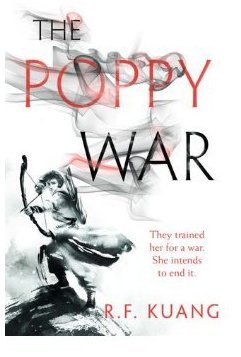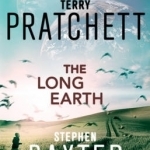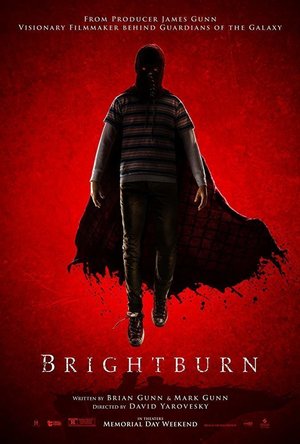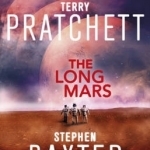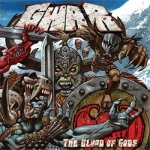
The Blood Of Gods by Gwar
Album Watch
The story of GWAR is carved across the history of this barren and hopeless planet, but GWAR...
thrash metal
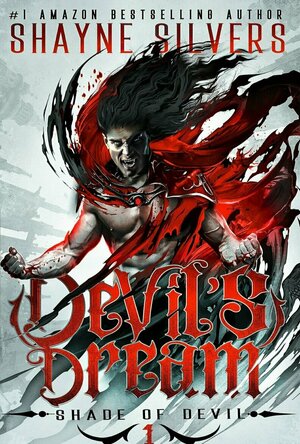
Devil's Dream: Shade of Devil Book 1
Book
The greatest trick the First Vampire ever pulled was convincing the world that he didn’t exist. ...
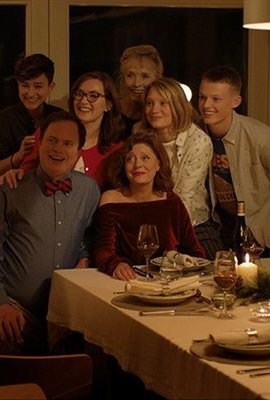
Blackbird (2019)
Movie
A terminally ill mother (Susan Sarandon) invites her family to their country house for one final...
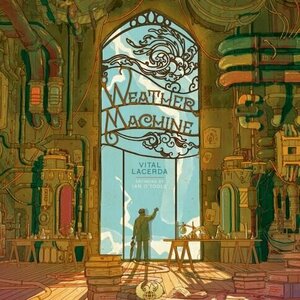
Weather Machine
Tabletop Game
“Natural disasters will soon be a thing of the past!” proclaimed Professor Sêni Lativ, Project...
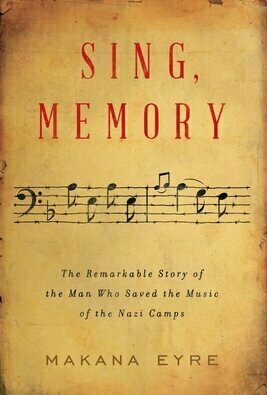
Sing, Memory
Book
A Polish musician, a Jewish conductor, a secret choir, and the rescue of a trove of music from the...
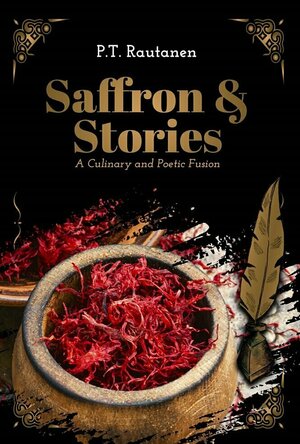
Saffron & Stories: A Culinary and Poetic Fusion
Book
Embark on a sensory journey through the heart of Persian culture with "Saffron & Stories: A Culinary...
Jordan Binkerd (567 KP) rated The Long Earth in Books
Aug 13, 2019
I’m a huge fan of Terry Pratchett’s work, in case you hadn’t noticed. I’m slowly working my way through his Discworld novels and Good Omens: The Nice and Accurate Predictions of Agnes Nutter, Witch, cowritten with Neil Gaiman, is among my favorite books of all time.* So when I discovered The Long Earth at my local library, I was ecstatic. I’d heard good things about Stephen Baxter, but never actually read any of his material. What I found was one of the best novels I have read in a very long time.
The premise here is that there are infinite worlds parallel to ours, spread out across the vast “contingency tree” of possible Earths, and in all of the Long Earth only one iteration has developed Human life–ours. Throughout our history there have always been a few with the natural ability to “step” between worlds at will, and still others who did so unintentionally and disappeared forever, but the world at large was unaware of this phenomenon until a reclusive scientist posted the blueprint for a “stepper” device on the internet and promptly disappeared from his apartment. Suddenly, the whole of the Long Earth is opened up to humanity. Suddenly, there is no shortage of land or resources. Economies are hard hit, jobs are lost, and once again humanity’s pioneer spirit is stirred to go out into the frontier and try to make their way….
Joshua Valiente is a so-called “natural stepper,” but he is probably unique among humanity. In the stress of childbirth, his mother stepped out of her world and into a parallel forest before slipping back without him. She managed to get back and recover him pretty quickly, but nevertheless young Joshua spent the first ten minutes or so of his life completely alone in his universe. As a result, he is uniquely attuned to the Long Earth. He can step between worlds without nausea, and is keenly sensitive to the number of people around, growing intensely uncomfortable the more crowded things get. Now, fifteen years after the world learned of the Long Earth, he spends most of his time exploring where no man has gone before. Lobsang, on the other hand, is a keenly intelligent AI, who may or may not be the latest reincarnation of a Tibetan motorcycle repairman. In collaboration with the shadowy Black Corporation, Lobsang has conceived a plan to test just how far the Long Earth goes. And he wants Joshua to go with him….the resulting journey is as much an exploration of what may have been as it is a geographical one, with most worlds mirroring our own, but a few display the effects of a cosmic “toss of a coin” going the other way–for example, there’s one where the Earth was completely destroyed by an asteroid strike sometime in the distant past.
Put quite plainly, this was the best thing I’ve read in a very long time. Very original, and to my (admittedly limited) understanding very faithful to the relevant science without losing quality of narrative or character. Pratchett’s humor and sardonic narrative voice shines through quite often in the interpersonal or introspective moments as well as those detailing more plot driven points–those scenes that would, in a film, become some form of montage showing that time is passing and this is what’s happening in the meantime. As I mentioned, I’ve never read Baxter before, so it’s harder to pick out his voice from their collaboration.
Infodumping has become something of a cardinal sin in the science fiction world, but sometimes you just have to throw some information at the reader so that he doesn’t get lost. I felt that The Long Earth handled that very well. We get our first glimpse at the long earth in montage mode, a series of vignettes that don’t make sense on their own, people popping in and out of worlds without understanding themselves what is going on. This is followed by the main story, twenty years after the discovery of the Long Earth, in which the bare bones are presented via a TV interview a character is half-watching while he waits. These bare bones of the conceptual basis of the book are then fleshed out in more detail as Joshua and Lobsang and introduced and get to know each other, discussing the various theories regarding the Long Earth at length in an effort to better understand it themselves. This is interspersed with flashbacks, sometimes Joshua recalling his experiences, sometimes Lobsang telling stories of other people based on his research into early encounters with the Long Earth. In this way Pratchett and Baxter manage to convey how humanity as a whole is dealing, not just Joshua and Lobsang. If I have one complaint with this it is not always clear why or how we are being told this–you don’t discover until the end of the chapter that Lobsang is telling this to Joshua instead of the authors just throwing in a tangential bit with no direct connection. And it is all connected–every revelation, every character you visit and then abandon early in the book will come back and have significance later on.
This is perhaps not the easiest read–you do have to engage it to understand it properly–but neither is it an incomprehensible enigma. As long as you pay attention you should be fine.
CONTENT: Some R-rated language, but not nearly what you could find elsewhere. Some violence, some grisly aftermath of violence. Sexual references, but nothing explicit.
*I’m frankly a little surprised I don’t have a review of that one up here, I must have reread it last just before I started doing this. I’ll have to fix that in the near future….
Original post: https://jordanbinkerd.wordpress.com/2013/09/18/review-the-long-earth-by-terry-pratchett-stephen-baxter/
Lee (2222 KP) rated Brightburn (2019) in Movies
Jun 11, 2019
Brightburn begins by mirroring the origin story of Superman very closely - even the soundtrack reminded me of the music from 2013 movie Man of Steel on more than one occasion! Tori (Elizabeth Banks) and Kyle Bryer (David Denman) are a happily married couple, living on a farm and longing for a child of their own. And then one night, a meteor crash lands out in the nearby woods, bringing them a baby boy who they adopt as their own. We see home movies of a normal baby/toddler as he grows up as part of a normal, loving family. And then we move forward 10 years to present day.
As an adolescent, Brandon (Jackson A. Dunn) begins to experience some change in his life. His parents put it down to hormones, and attempt to give him the talk on girls and the facts of life, but it's a lot more than that. The rock shaped vessel which carried Brandon to Earth as a baby has been locked away in the family barn all these years, hidden from Brandon, but has now started glowing red. At the same time, something within Brandon appears to have been activated, and a number of small but disturbing incidents that follow leave his parents worried. They also realise that they've never actually seen their son bleed, or even hurt before. From there, the severity of these incidents increases greatly, and it becomes clear that there is definitely something very, very wrong with Brandon.
What I loved about Brightburn was the confined, low key setting of it all. The action is restricted primarily to the town of Brightburn, never really expanding into the worldwide, CGI heavy destruction of other superhero movies. We have an incredibly relatable mother who is out to love and protect her son until the bitter end, a father who becomes scared and horrified by everything that is unfolding, and then this powerful boy tearing the family apart - unpredictable and showing no sign of remorse or inner turmoil over everything that is happening. Outside of that, the action is confined to a relatively small cast - the local police, extended family and some other kids from school who we all follow throughout the movie - there's a lot of character depth to be found in Brightburn, which greatly adds to its overall enjoyment.
As is the norm these days though, the trailer does give away the majority of Brandon's targets and where he attacks them, meaning you kind of know what to expect for a lot of it. However, what the trailer doesn't give away is the atmosphere and the eeriness that builds to each of those shocking (and gory) moments and there are still plenty of jump scares and shocking scenes to keep you on your toes throughout. It builds to a climax which once again isn't a CGI overload, relying on shock and horror to deliver it's interesting conclusion. And, most importantly, it leaves the door open for what could be a very interesting sequel. I'm all up for that, and the direction that hints at, as I found Brightburn to be a very enjoyable and fresh take on the superhero genre.
Phil Leader (619 KP) rated The Long Mars in Books
Nov 20, 2019
The usual characters are here. Lobsang is less in evidence than previously, despite driving what is the core of the book. Joshua is also a little sidelined as his story is tied closely to that of Lobsang. The bulk of the actual pages are concerned with Sally Lindsay and Maggie Kaufmann as they set off on their own voyages of discovery on the seemingly infinite copies of Earth and - not too much of a spoiler since it's in the title - Mars.
Whereas the previous books have essentially had one thread of a story around which the characters revolve towards some sort of end. This book seems more as if the authors couldn't really decide what they wanted to write about.
Should they write about more versions of the Long Earth, more fantastic worlds and lifeforms? Or perhaps investigate what has really been happening at Happy Landings, the seemingly too perfect town which existed long before Step Day? Or perhaps you are Stephen Baxter and can't resist going to Mars and showing many stepwise possibilities for that planet?
Rather than focus on one of these, all three are covered.
Maggie Kaufmann takes a brand new Twain far beyond the current limits of exploration into completely uncharted - and very strange - worlds. She must deal with the crew during their long trip, a surprise guest and aims to find out what happened to a previous expedition that vanished. Once again Pratchett and Baxter dig up some potentially different outcomes for both life on Earth and the planet itself, although many of the worlds are skimmed over and this part does get a little repetitive - another world, another odd ecology. This thread did feel a little like filler, there for those who want to see what might happen at the extremes of the Long Earth, although events do tie in with Lobsang's story.
Lobsang (the omnipresent super computer) has become concerned with matters of existence and what might come after. In particular is the human race evolving? He asks Joshua to help out and discover if there is any evidence for a breed of super human evolving as Lobsang theorises there must be. It seemed to me this is the real story of the book, a query on what would happen if a vastly more intelligent form of humanity evolved as a step change rather than a gradual one. What would they do? Would the rest of humanity accept them or feel threatened by them? The thread is short - barely more than an essay - and takes a good while to work through but provides the ultimate ending to the book.
Meanwhile, Sally Lindsay finds herself at The Gap, preparing to visit Mars, part of some mysterious quest for 'something' by her father. Here Baxter's history of writing Mars colonisation stories (they even get a mention) comes to the fore as the possibilities of a Long Mars are explored. In the real world Mars is cold, arid and inhospitable but there may be the odd chance for life to have developed. What would this be like? Again we have many different worlds although these are skipped through a little better than the Maggie Kaufmann Long Earth voyage and seem a little less repetitive - or where there is repetition it is more interesting than mundane.
Overall this is a good read in the series, probably a little better than The Long War but again lacking the coherence and sheer enthusiasm of The Long Earth (perhaps inevitably). As a work of science fiction it works well - the broad brush 'imaginary worlds' of the Long Earth and the Long Mars juxtaposed by the more existential investigation into human evolution.
Would I read a fourth installment? Undoubtedly, there are stories yet to be told. Would I recommend this book? Only if the recommendee had enjoyed the previous two books.
